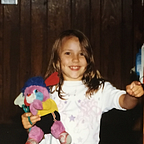What I’ve Learned About Homelessness
Before starting grad school last year, I was the editor of a street newspaper called the Denver VOICE.
This street newspaper is a nonprofit with a twofold mission: publish news about social justice issues (particularly stories relating to homelessness and poverty) and create jobs for people experiencing homelessness.
People experiencing homelessness is a long, slightly clunky phrase. If you’ve never worked or volunteered for a nonprofit that serves people experiencing homelessness, you probably haven’t heard that phrase before. And you might be wondering, what’s wrong with saying “homeless people” or “the homeless?”
Here’s the thing about homelessness: it’s a condition, not a specific class of people.
Homelessness is a condition, not a specific class of people.
By that I mean that homelessness is something that happens to people. It’s a symptom of all sorts of societal and social problems, and it can affect anyone from any walk of life. The shift in the language we use is about recognizing someone’s humanity. It’s about being aware of our tendency to define people by their outward appearances, and then intentionally confronting that tendency to change how we address the larger issue.
Even the most kind and altruistic people can fall into the trap of “Otherizing” those they want to help. I was no different when I first started working at the Denver VOICE as an intern in 2008. I wanted to help homeless people, and, although I had good intentions, I definitely thought of homeless people as a different category of people.
When you work for a streetpaper, one of your jobs is to help people experiencing homelessness share their stories. Although there were common thematic elements (loss, rejection, injustice), I never heard the same story twice. There is no formula, just many diverse experiences.
I’ve never been in a situation where I fit the official HUD definition of someone experiencing homelessness, but in early 2016, I came close. That was when, with no plan, I abruptly moved out of the home I had shared with my boyfriend of nine years. I had a friend who lived in a studio apartment in my neighborhood, and she invited me to stay with her that first night. I slept on a loveseat next to her bed.
The next day, I sent out a vague email to a bunch of local friends saying I was looking for a new place to live. I was mainly looking for leads on possible roommates or subletting opportunities, but I think I was also hoping someone would invite me to stay with them while I figured out my next move. I had friends in the Denver suburbs who lived in houses with extra bedrooms, but I was too embarrassed to come out and ask if I could live with them while I figured my life out.
I ended up staying in that friend’s studio apartment for almost eight weeks. After that first night, I slept on her floor because it was more comfortable than the loveseat. Every morning, I got dressed from a suitcase and went to my job as the editor of the homeless paper.
In 2016, the rental market in Denver was brutal. There weren’t many apartments I could afford, and the ones I could afford were often on the market for less than a day. I remember calling about one studio I found listed for $600 a month. (It was 250 square feet, and only had a hot plate for a “kitchen”.) I called the landlord to ask if I could come and look at it, and he told me it would be gone before I got there. People usually rented his places sight unseen over the phone. Timeliness and availability were only part of the problem. I also had a decade-long gap in my rental history and no savings with which to move.
In the end, I cashed out part of a 401(k) in order pay the standard first month’s rent + last month’s rent + security deposit combo. After almost two months, I ended up being able to move into another studio apartment in my friend’s building, and I felt lucky.
I mentioned that I didn’t fit the HUD definition of homelessness during this time, and I want to stress the fact that I didn’t consider myself to be experiencing homelessness. I did consider myself lucky; I had a friend who offered right away to take me in and who didn’t kick me out when a few nights turned into 52 nights.
I’m sharing this because these kinds of stories are more common than you think. Homelessness doesn’t always start with mental health issues or substance abuse. More often it starts with income strain due to unexpected medical bills or loss of affordable housing. Sometimes shit just happens before you have time to plan for it, and you either don’t have a support network nearby or you’re too embarrassed to ask for help.
It would be nice if I could tie this up with a bow for you and tell you my time sleeping on that floor was the pivotal, watershed moment when I stopped thinking of people experiencing homelessness as a category of humans that were different from me. It wasn’t, and that story doesn’t exist. The change came much earlier for me, and it came on gradually.
The reality is that there was not one moment, just the accumulated learning from listening to many stories.
